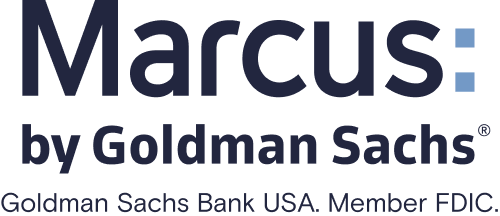How to Cash a Savings Bond
Learn how and where to cash a savings bond, and check the value first to determine when it’s worth it.

Many, or all, of the products featured on this page are from our advertising partners who compensate us when you take certain actions on our website or click to take an action on their website. However, this does not influence our evaluations. Our opinions are our own. Here is a list of our partners and here's how we make money.
My husband and I received tiny shoes, outfits and baby books for our kids when they were born in the 2000s. My parents received similar items for me upon my birth in the 1970s, but something else, too: savings bonds.
Now, the staid savings bond is back in fashion, or at least has seen a boom in recent years as an inflation-beating investment, particularly because of Series I bonds, introduced in 1998 (the savings bond itself was created in 1935).
For those of us who purchased or received any type of savings bonds as a gift in the not-so-recent past, it may be time to give them another look. Eight of mine were 30-plus years old and had stopped accruing interest, so I opted to cash them. When it’s time to cash a savings bond, here’s what you need to know.
Forbright Bank Growth Savings

4.00%
$0

Member FDIC
Varo Savings Account

5.00%
$0

Member FDIC
E*TRADE Premium Savings

3.50%
$0
Where do I cash in a savings bond?
You can cash paper bonds at a bank or through the U.S. Department of the Treasury’s TreasuryDirect website. Not all banks offer the service, and many only provide it if you are an account holder, according to a NerdWallet analysis of the 20 largest U.S. banks. Some institutions stipulate that you need to be an account holder for a year before cashing a savings bond. It's best to call ahead to check with your bank.
Another reason to contact your financial institution before heading to a branch is that some banks may not cash all types of bonds. Some banks, for example, don’t let you cash bonds in the name of a guardian, trustee or other representative of an estate; you also can’t cash bonds if you’re acting as a power of attorney. You likely can’t cash damaged or altered bonds anywhere.
If you have a paper savings bond but your bank can’t cash it, you’ll need to redeem it online at TreasuryDirect or at a financial institution that will cash savings bonds for non-account holders. I cashed several bonds at a bank where I am not an account holder, and I needed two forms of ID.
What documents do I need to cash a savings bond?
Generally, if you’re listed as the registered owner of the savings bond, you should need to bring just the paper bond and one or two current forms of identification to a bank or credit union.
If you are the owner or beneficiary of a bond that does not list your current name, you’ll need proof of your name change. I cashed in a few bonds recently, and I brought a copy of my marriage certificate, my driver’s license with my current name, and my Social Security card with my old name.
Depending on your circumstances, you may need to provide other documentation. “For people listed as a beneficiary, a death certificate is needed to process the transaction,” Jennifer Elmore, a spokeswoman for Regions Bank, said via email.
Is it worth it to cash a savings bond?
If your bond is at least 30 years old, the answer is yes because it has stopped increasing in value. To find out whether yours has matured, or to see the current value or the next interest accrual date for unmatured bonds, use the Treasury Department’s savings bond calculator.
You can cash in a bond after a year, but you’ll pay a three-month interest penalty if you redeem it before you’ve had it for five years. There can be exceptions because of natural disasters.
Do I pay taxes when I cash in savings bonds?
Yes. You pay taxes when you cash your savings bond, though you can also pay before you cash your bond. Regardless of when, you’ll pay federal income tax and may be subject to other taxes on the interest earned from a savings bond.
According to TreasuryDirect, you can report the interest on savings bonds when you receive it, or you can report the interest annually even before you receive it. Most people wait until cashing in their bonds, the Treasury site notes, and that’s what I did in 2023. The two banks gave me receipts while I waited for the 1099-INT tax forms from them. For any bonds I cash online, the tax forms will be available in my TreasuryDirect account by Jan. 31 of the next year.
Savings bonds are a low-risk investment with a decent return. To my family members who gave me those bonds upon my birth, thanks! I’m now $1,200 richer.








